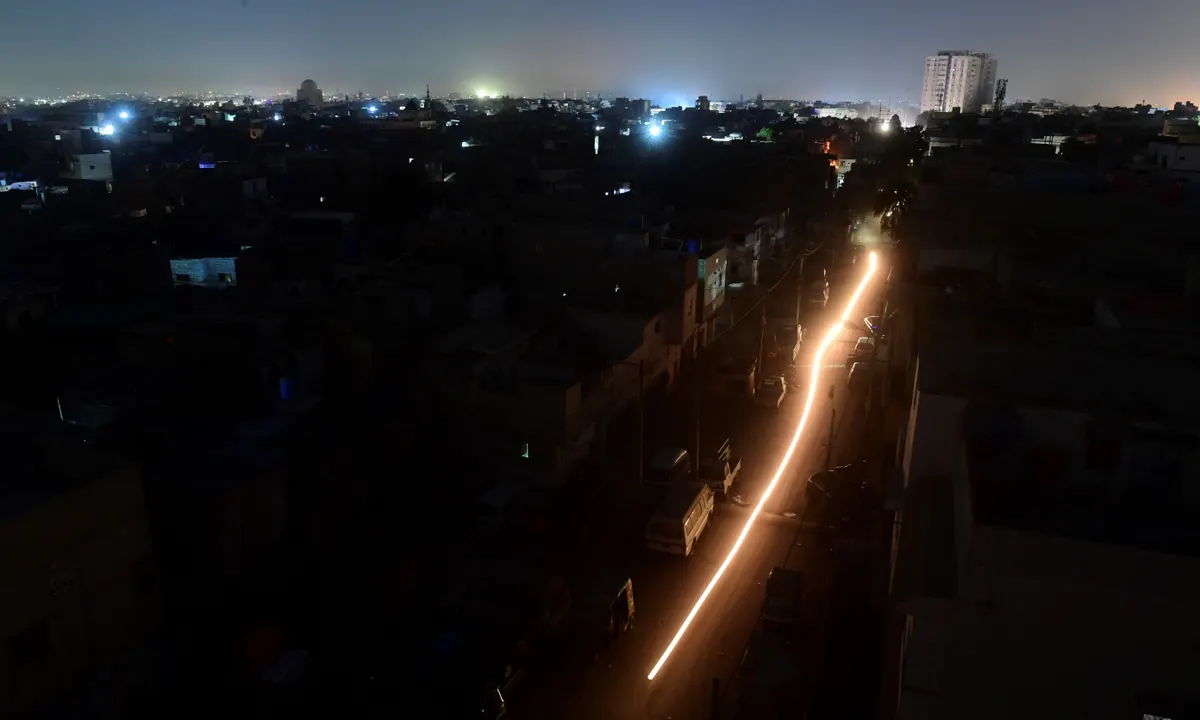Electricity supply was restored across Pakistan after a nationwide blackout that lasted about 24 hours in some regions, though work to fully reconnect power plants may cause more disruptions in the coming days.
A vast swath of the 220 million population were left without power after the national grid failed on Monday morning, forcing hospitals to switch to back-up generators and causing major disruption to mobile and internet services.
“The power system is completely restored,” Energy Minister Khurram Dastgir Khan told reporters Tuesday. “We are supervising and trying to ensure that such incidents don’t recur.”
The precise cause of the outage remains unknown and Prime Minister Shehbaz Sharif has ordered an investigation, Khan said. That will assess whether external hacking could have been a contributor, according to the minister, who also pointed earlier to a period of low demand and a decision to save costs by taking some plants offline as potential catalysts.
Pakistan is grappling with a series of energy challenges, including aging electricity transmission infrastructure that’s suffered repeated recent outages and a major failure of the national grid in January 2021.
Surging costs of fuel imports amid last year’s squeeze on global energy supplies have exacerbated the nation’s difficulties with soaring inflation and dwindling foreign currency reserves. Conditions for funding from the International Monetary Fund include a further hike in energy prices.
Rolling blackouts and fuel rationing have been in place for months, and a recent series of proposals aims to cut power demand by about half. Public sector employees have been requested to work from home, while shopping malls, markets and restaurants are being asked to close earlier than usual.
Pakistan will focus attention on upgrading safety mechanisms in the electricity distribution system, and a total of 80 billion rupees ($346 million) of projects have begun in recent months, he said.

